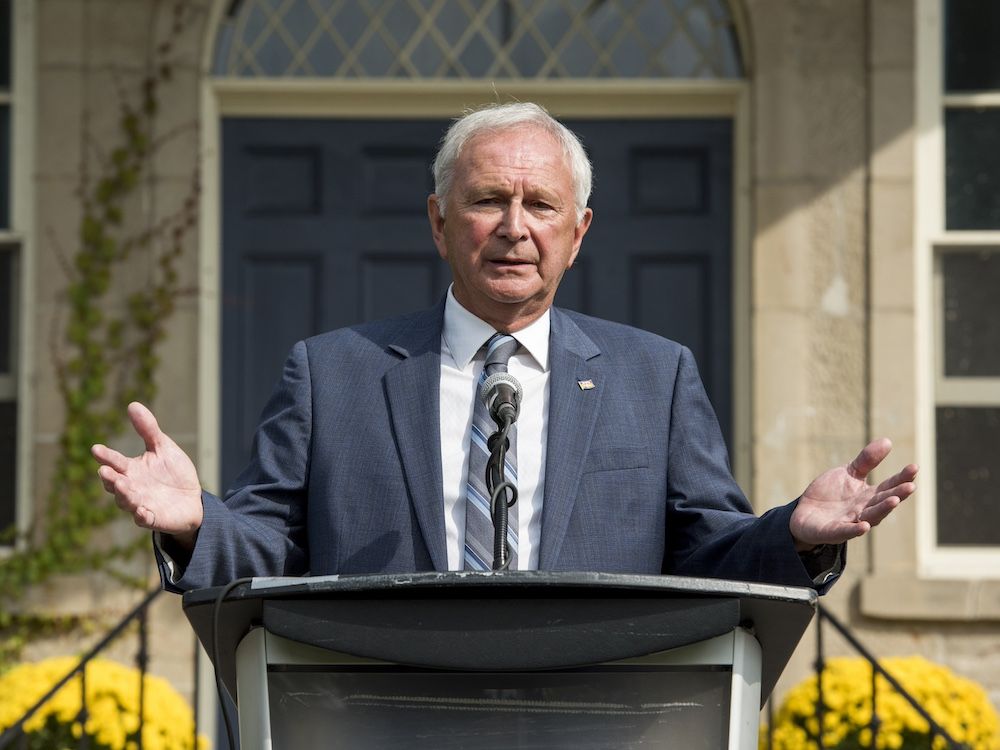Decades of protecting domestic airlines have given them far too much power
Get the latest from Jesse Kline straight to your inbox
Published Sep 11, 2024 • Last updated 27 minutes ago • 3 minute read

A WestJet mechanics strike at the end of June only lasted a few days, but managed to disrupt the travel plans of an estimated 110,000 people. At the Calgary International Airport, over 40 per cent of incoming and outgoing flights were cancelled. And if you think that was bad, the looming Air Canada pilots strike will be orders of magnitude worse.
Late last month, the Air Line Pilots Association voted to approve a strike mandate that could see 5,200 pilots walk off the job as early as Sunday if a last-minute deal cannot be reached. This will ground 670 flights a day, which typically serve more than 110,000 passengers.
Advertisement 2
THIS CONTENT IS RESERVED FOR SUBSCRIBERS
Enjoy the latest local, national and international news.
- Exclusive articles by Conrad Black, Barbara Kay and others. Plus, special edition NP Platformed and First Reading newsletters and virtual events.
- Unlimited online access to National Post and 15 news sites with one account.
- National Post ePaper, an electronic replica of the print edition to view on any device, share and comment on.
- Daily puzzles including the New York Times Crossword.
- Support local journalism.
SUBSCRIBE FOR MORE ARTICLES
Enjoy the latest local, national and international news.
- Exclusive articles by Conrad Black, Barbara Kay and others. Plus, special edition NP Platformed and First Reading newsletters and virtual events.
- Unlimited online access to National Post and 15 news sites with one account.
- National Post ePaper, an electronic replica of the print edition to view on any device, share and comment on.
- Daily puzzles including the New York Times Crossword.
- Support local journalism.
REGISTER / SIGN IN TO UNLOCK MORE ARTICLES
Create an account or sign in to continue with your reading experience.
- Access articles from across Canada with one account.
- Share your thoughts and join the conversation in the comments.
- Enjoy additional articles per month.
- Get email updates from your favourite authors.
Article content
Coming on the heels of a short-lived but highly disruptive strike at Canada’s two major railway companies, Canadians are witnessing the drawbacks of government policy designed to coddle domestic industries and protect them from foreign competition.
For decades, Canadians have had to contend with an airline duopoly, with Air Canada and either Canadian Airlines or WestJet controlling the vast majority of the market due to government rules that prevent foreign carriers from operating domestic flights and foreign investors from backing Canadian airlines with serious money.
The situation has improved somewhat in recent years, with the federal government increasing the foreign ownership limit to 49 per cent, from the previous 25, in 2018, and a number of upstart discount airlines providing competition for the country’s two major carriers.
Despite these developments, however, WestJet and Air Canada still control over 70 per cent of the market and have used their advantage to either buy up smaller carriers, such as Sunwing, or drive them out of business, as happened with Lynx Air.
By signing up you consent to receive the above newsletter from Postmedia Network Inc.
Article content
Advertisement 3
Article content
This is only possible because start-ups have limited resources and often cannot compete with companies that have the ability to take a loss on flights in order to force new competitors out of business. The situation would be much different if large carriers from elsewhere in the world were allowed fly domestic routes.
In Europe, for example, any airline that’s allowed to operate within the European Union can pick up and drop off passengers within any member state, a 1990s-era reform that led to a 120 per cent increase in flights within the EU and a 400 per cent increase in the number of routes serviced by at least two carriers between 1992 and 2008, according to the European Commission.
The United States also has much more competitive air-travel sector, with four carriers controlling around 78 per cent of the market, rather than two. Canada may not have the population or the geography to support as many airlines, but there’s no good reason why we shouldn’t be able to take advantage of the robust industry south of the border to drive down prices and expand service here at home.
Advertisement 4
Article content
If Air Canada pilots do go on strike, foreign airlines will be able to pick up some of the slack on overseas flights, but people looking to fly within the country will be left holding the proverbial luggage.
None of this is news to Ottawa. At the end of July, the Competition Bureau launched an examination of the air-travel sector, noting that the market is highly concentrated, air travel is expensive and new airlines face significant barriers to entry. “Increasing competition,” the bureau notes, “would save Canadians money, make accessing flights easier and improve the quality of services offered across the country.”
Indeed it would. But do we really need a bunch of bureaucrats taking a year to draft a report to tell us what we already know? Namely that Canada would have a much more competitive marketplace if it allowed international carriers to compete on domestic routes, did away with foreign ownership limits and took concrete steps to reduce airport fees by phasing out the $6.5 billion that airports pay to Ottawa in rent every year and finding efficiencies through privatization.
There’s not much that can, or should, be done at this point to mitigate the damage caused by a potential pilots strike. But if the federal government is serious about upholding labour rights and reducing the cost of living, it should stop protecting airlines that don’t seem to give a lick about their customers from foreign competition and set the skies free.
National Post
[email protected]
Twitter.com/accessd
Recommended from Editorial
-

Jesse Kline: More competition could make our skies even friendlier
-

Sabrina Maddeaux: Flying in Canada is silly expensive — time to open Air Canada and WestJet to competition
Article content
Get the latest from Jesse Kline straight to your inbox
.png)
 1 week ago
7
1 week ago
7




































 Bengali (BD) ·
Bengali (BD) ·  English (US) ·
English (US) ·